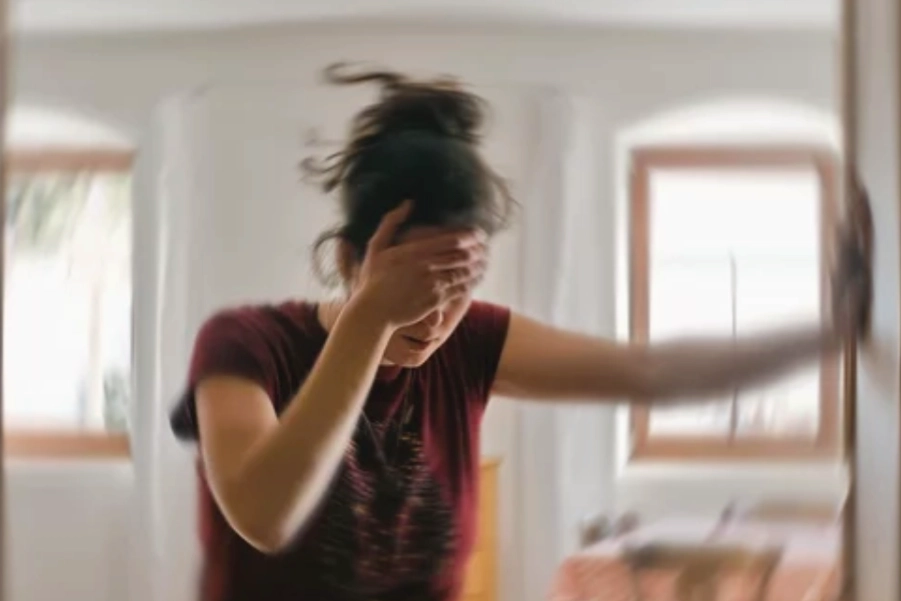Best Physiotherapy for Vertigo and dizziness You Can Trust
Trust “Best Physiotherapy for Vertigo and dizziness ” for tailored rehabilitation, integrating evidence-based techniques to maximize recovery and restore independence. Our compassionate care and dedicated support aim to guide people affected by Vertigo and dizziness towards improved mobility and quality of life.
Best Vertigo and dizziness physiotherapy Doctors in Delhi, India

Physiotherapy for Vertigo and dizziness
Vertigo and dizziness Physiotherapy in Delhi
Vertigo and dizziness can arise from various inner ear disorders or neurological conditions, causing a sensation of spinning or imbalance. Rehabilitation involves vestibular rehabilitation therapy (VRT), which includes exercises and maneuvers to retrain the brain’s response to balance cues. Additionally, lifestyle modifications and medication management may be incorporated to alleviate symptoms and improve overall quality of life. Multidisciplinary collaboration among vestibular specialists, physical therapists, and otolaryngologists is essential for personalized treatment plans tailored to individual needs.
What is Vertigo and dizziness
Vertigo and dizziness are sensations often described as a feeling of spinning, unsteadiness, or disorientation. Vertigo specifically refers to the sensation of movement when stationary, such as a spinning or tilting sensation, often accompanied by nausea or vomiting. Dizziness is a broader term encompassing various sensations of lightheadedness, faintness, or a sensation of being off-balance. These symptoms can be caused by inner ear disturbances, vestibular system issues, neurological conditions, or other underlying health concerns. Proper diagnosis and treatment by a healthcare professional are essential to address vertigo and dizziness effectively.
Vertigo and dizziness can stem from various underlying causes, including:
INNER EAR DISORDERS:
Conditions such as benign paroxysmal positional vertigo (BPPV), vestibular neuritis, and Meniere’s disease can disrupt the normal functioning of the inner ear, leading to vertigo and dizziness.
NEUROLOGICAL CONDITIONS:
Disorders affecting the brainstem or cerebellum, such as migraine-associated vertigo, vestibular migraine, and multiple sclerosis, can result in vertigo and dizziness.
MEDICATIONS:
Certain medications, particularly those affecting the inner ear or central nervous system, may cause vertigo and dizziness as side effects.
HEAD INJURIES:
Traumatic brain injuries or concussions can damage the vestibular system, leading to persistent vertigo and dizziness.
CARDIOVASCULAR ISSUES:
Conditions like orthostatic hypotension, heart arrhythmias, or reduced blood flow to the brain can result in lightheadedness or dizziness.
ANXIETY AND STRESS:
Psychological factors can contribute to sensations of dizziness or lightheadedness, especially in individuals prone to panic attacks or anxiety disorders.
DEHYDRATION OR LOW BLOOD SUGAR:
Inadequate hydration or fluctuations in blood sugar levels can lead to symptoms of dizziness.
VESTIBULAR MIGRAINES:
Migraine headaches accompanied by vertigo or dizziness are characteristic of vestibular migraines, a subtype of migraines.
INFECTIONS:
Viral or bacterial infections affecting the inner ear, such as labyrinthitis or vestibular neuritis, can cause vertigo and dizziness as symptoms.
AGE-RELATED CHANGES:
Aging can lead to degeneration of the vestibular system and changes in balance, resulting in increased susceptibility to vertigo and dizziness.
Causes of Vertigo and dizziness
Identifying the underlying cause of vertigo and dizziness is crucial for effective management. Professionals specialized in vestibular rehabilitation, play a key role in this process.
Vestibular rehabilitation specialists conduct thorough assessments to pinpoint the specific cause of vertigo and dizziness. Using vestibular function tests and medical history evaluations, they diagnose vestibular disorders or neurological conditions contributing to symptoms.
INNER EAR DISORDERS I NEUROLOGICAL CONDITIONS I MEDICATIONS I HEAD INJURIES I CARDIOVASCULAR ISSUES I ANXIETY AND STRESS I DEHYDRATION OR LOW BLOOD SUGAR I VESTIBULAR MIGRAINES I INFECTIONS I AGE-RELATED CHANGES

Treatment of Vertigo and dizziness
Treatment for vertigo and dizziness typically involves a multidisciplinary approach tailored to the underlying cause. Here's an overview:
VESTIBULAR REHABILITATION THERAPY (VRT):
VRT is a specialized form of physiotherapy designed to improve balance and reduce dizziness symptoms. It involves exercises and maneuvers that aim to retrain the brain's response to vestibular signals and enhance compensation mechanisms.
MEDICATION:
Depending on the cause of vertigo, medications such as vestibular suppressants, anti-nausea drugs, or steroids may be prescribed to alleviate symptoms.
LIFESTYLE MODIFICATIONS:
Simple lifestyle changes like avoiding sudden movements, staying hydrated, getting adequate rest, and managing stress can help reduce the frequency and severity of vertigo episodes.
CANALITH REPOSITIONING MANEUVERS:
For certain types of vertigo, such as benign paroxysmal positional vertigo (BPPV), specific maneuvers like the Epley maneuver or Semont maneuver may be performed to reposition displaced inner ear crystals and alleviate symptoms.
SURGICAL INTERVENTION:
In rare cases where vertigo is caused by structural abnormalities in the inner ear or vestibular nerve, surgery may be considered as a treatment option.
MANAGEMENT OF UNDERLYING CONDITIONS:
If vertigo is secondary to an underlying medical condition such as Meniere's disease, migraine, or vestibular neuritis, treatment of the primary condition is essential for symptom relief.
COUNSELING AND SUPPORT:
Coping strategies, relaxation techniques, and psychological counseling may be beneficial for individuals experiencing significant anxiety or distress due to vertigo and dizziness.
Overall, the treatment approach for vertigo and dizziness is highly individualized and may require ongoing adjustments based on the patient's response and the progression of symptoms. Consulting with a healthcare professional, preferably one specialized in vestibular disorders, is essential for accurate diagnosis and effective management.
Physiotherapy Treatment for Multiple Sclerosis
Physiotherapy for vertigo and dizziness involves vestibular rehabilitation therapy (VRT), comprising specialized exercises to improve balance, reduce symptoms, and enhance overall function, tailored to individual needs for effective management.
Technological advances in physiotherapy for vertigo and dizziness include virtual reality (VR) systems for immersive vestibular rehabilitation exercises, portable balance assessment tools using wearable sensors, and tele-rehabilitation platforms for remote monitoring and delivery of therapy. These innovations enhance treatment accessibility, engagement, and outcomes for individuals with vestibular disorders.
When to Start Physiotherapy After Vertigo and dizziness
Vestibular rehabilitation therapy (VRT) should ideally commence as soon as the individual’s condition is diagnosed and deemed stable by a healthcare professional. Early intervention can help alleviate symptoms, prevent complications, and promote faster recovery by facilitating the brain’s adaptation to vestibular system changes.
Physiotherapy & Rehabilitation for Vertigo and dizziness
Multiple sclerosis (MS) rehabilitation typically includes a multidisciplinary approach involving various healthcare professionals. Components may include:
Physiotherapy and rehabilitation play a crucial role in managing vertigo and dizziness, particularly when they stem from vestibular disorders. Here’s how physiotherapy can help:
Vestibular Rehabilitation Therapy (VRT)
VRT is a specialized form of physiotherapy designed to address balance and vestibular function. It involves exercises and maneuvers aimed at retraining the brain to compensate for inner ear deficits, reduce symptoms, and improve stability.
Balance Training
Physiotherapists use various balance exercises to help patients regain stability and reduce the risk of falls. These exercises may include standing on different surfaces, walking in straight lines or patterns, and performing movements that challenge balance.
Gaze Stabilization Exercises
These exercises focus on improving the ability to maintain visual focus during head movements, which can help reduce dizziness and disorientation. Examples include tracking moving objects with the eyes or fixing gaze on a stationary target while moving the head.
Canalith Repositioning Maneuvers
For conditions like benign paroxysmal positional vertigo (BPPV), physiotherapists may perform specific maneuvers like the Epley maneuver or Semont maneuver to reposition displaced inner ear crystals and alleviate symptoms.
Strength and Conditioning
Strengthening exercises targeting the muscles involved in posture and balance can improve overall stability and reduce the risk of falls. This may involve exercises for the legs, core, and trunk muscles.
Education and Lifestyle Modifications
Physiotherapists provide guidance on lifestyle modifications and strategies to manage symptoms, such as avoiding triggers, maintaining hydration, getting adequate rest, and managing stress.
Progressive Rehabilitation
Treatment plans are tailored to the individual’s needs and may progress gradually as the patient’s symptoms improve. Regular reassessment allows for adjustments to the rehabilitation program as needed.
Home Exercise Programs:
Patients are often prescribed exercises to perform at home to complement in-clinic therapy sessions and facilitate ongoing progress.
Overall, physiotherapy and rehabilitation for vertigo and dizziness aim to improve balance, reduce symptoms, enhance quality of life, and promote independence in daily activities. Working closely with a physiotherapist specialized in vestibular rehabilitation ensures personalized care and optimal outcomes for individuals with vestibular disorders.
Our Treatment Process
Committed To Keep People Healthy & Safe
Our treatment process begins with a thorough assessment, followed by the creation of a personalized plan tailored to your needs. Through active rehabilitation, incorporating various evidence-based techniques, we work to promote healing and improve function. Continuous support and guidance are provided to ensure long-term success.
We start by having a thorough conversation with you about your medical history and any issues you’re experiencing. This helps us understand your unique situation.
We use state-of-the-art software and technology to analyze how your body moves and functions. This gives us a detailed picture of what might be causing your discomfort.
Based on what we find during the assessment, we create a personalized plan just for you. Our goal is to help you achieve specific outcomes, whether it’s reducing pain, improving mobility, or something else.
During your sessions with us, we use a combination of advanced technology and hands-on techniques to address your needs. This might include using special equipment or providing manual therapy to target problem areas.
We keep a close eye on how you’re doing throughout your treatment. By regularly checking your progress, we can make sure you’re on the right track and make any necessary adjustments to your plan.
Once you’ve made significant progress and reached your goals, we’ll guide you through a final session. Here, we’ll provide you with a customized digital exercise program that you can continue at home.
Even after your sessions with us are complete, we’re still here to support you. We offer virtual and online follow-up appointments to check in, answer any questions you may have, and provide ongoing guidance as needed.
At Best Physiotherapy Centre in Delhi for Vertigo and dizziness, We Follow Best Practices
Why Choose Us
We offer personalized care, crafting customized treatment plans based on your unique needs and goals. With expertise in physiotherapy and a holistic approach to healing, our team ensures comprehensive care that addresses both physical and emotional aspects of recovery.
- Personalized Care
- Experienced Professionals
- Expertise & Best Practices
- Holistic Approach
- Latest Technology
Meet Dr. Dharam Pandey and Team
Leaders in Advanced Neurological Rehabilitation
At Dr. Dharam Pandey and Team, we are dedicated to revolutionizing Neurological Rehabilitation through cutting-edge technology, personalized care, and a commitment to delivering exceptional outcomes. Led by Dr. Dharam Pandey, a renowned expert in neurorehabilitation, our team is equipped with state-of-the-art facilities and staffed by highly qualified professionals. We specialize in outcome-based functional task training therapy, harnessing the power of advanced technology to optimize recovery for patients.
State-of-the-Art Facilities
Our facilities are equipped with the latest technology and amenities to create a conducive environment for rehabilitation and healing. From spacious therapy gyms to private treatment rooms, we prioritize comfort, safety, and accessibility for our patients.
EXPERTISE
Led by Dr. Dharam Pandey, our team comprises highly skilled professionals with extensive experience in stroke rehabilitation.
PERSONALIZED CARE
We believe in a patient-centered approach, tailoring treatment plans to address the individual needs and goals of each patient.
ADVANCED TECHNOLOGY
We harness the power of advanced technology to deliver innovative rehabilitation solutions and optimize outcomes.
COMPASSIONATE SUPPORT
We provide compassionate, supportive care every step of the way, empowering patients to achieve their full potential.
Best Physiotherapy FOR Multiple Sclerosis
At Dr. Dharam Pandey and Team, we are committed to redefining the standard of care in neurological rehabilitation. With our expertise, state-of-the-art technology, and unwavering dedication to patient-centric care, we strive to inspire hope, restore function, and improve quality of life for head injury survivors. If you or a loved one is seeking specialized rehabilitation services, we invite you to experience the difference at Dr. Dharam Pandey and Team.
Call Today
+91-9818911195 +91-9818910029
Sector-6 Dwarka, Department Of Physiotherapy [Basement 1 Manipal Hospital, Delhi, 110075
Schedule a Appointment
Note: Content provided here is for informational purposes only and is not a substitute for professional medical advice or diagnosis. If you believe you are experiencing pain or any other health-related issue, it is important to seek the advice of qualified healthcare professionals for a proper evaluation and treatment plan.









